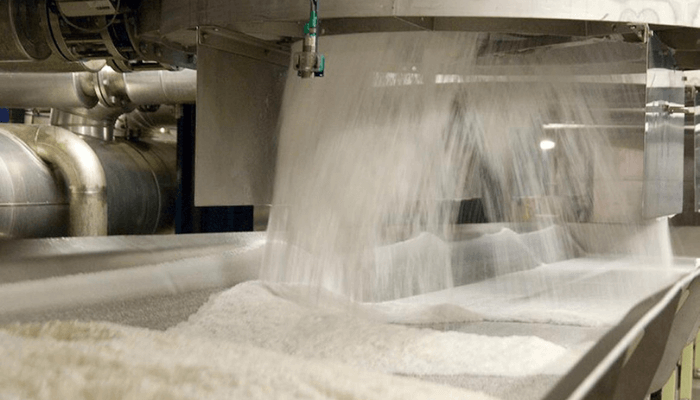Sugar production in Africa’s most populous country dipped 35 percent in 2023 amid refiners rising investments and weaker naira.
Sugar refiners have continued to make investments in boosting local production of sugar cane and increasing refinery capacity in recent years.
Data from the National Sugar Development Council (NSDC) shows that the country’s sugar production declined to 30,053 metric tons in 2023 from 46,479 metric tons in 2022.
Despite the sharp fall in production, sugar imports also declined 16 percent from 1.7 million metric tons to 1.4 million metric tons.
The country’s sugar consumption which has been on rise since 2021, declined by 16 percent, mainly driven by low consumer purchasing power and increasing number of health-conscious Nigerians.
Nigeria has been producing an average of 17,625 tons of sugar annually since the Backward Integration Policy (BIP) was introduced in 2012, ranking fourth in West Africa and 19th in Africa, according to a recent data analysis by the National Sugar Development Council (NSDC).
The industry receives billions of naira in annual incentives in the form of tax holidays, crop loans, tariffs, and regulated imports of foreign sugar, among others.
The essence of these incentives is to grow sufficient sugar to satisfy the local demand and expand it into a foreign exchange earner.
Read also: Nigeria seeks to leverage Chinese partnership to boost sugar production, exports
The backward integration policy, which is a critical part of the NSMP, was initiated in 2012 in the industry as a way of harnessing Nigeria’s sugarcane resources, creating jobs and a ready market through the value chain while bridging the country’s sugar demand at 1.53 million MT in 2020.
Under the initiative, local investors would make sizable investments in the industry within 10 years to guarantee self-sufficiency in the production of the sweetener and domestically produced extracts for their refineries.
Also, operators with backward integration plans were given import quotas to import raw sugar. The policy helped in attracting investments into the industry and has impacted production positively.
Nigeria’s sugar industry has expanded and continues to attract more investments as producers in the sector have vastly invested in cultivating large sugarcane plantations and building mills as stipulated in the policy.
According to the NSDC data, local production increased to 30,053 MT in 2023 from 6,843 MT in 2012 when the country kick-started the backward integration programme for the sector.
This has allowed big millers such as Golden Sugar Company, BUA and Dangote Sugar to continue making huge investments across the value chains.
According to the United States Department of Agriculture, Foreign Agricultural Services (FAS), Nigeria comes behind South Africa as the second largest market for sugarcane in sub-Saharan Africa while Nigeria produces less than five percent of the total consumed sugar.
Experts believe that with sustained investments by players under the backward integration policy, Nigeria would become the leading grower of the commodity in West Africa and among top producers in the continent within a matter of time.
Currently, there are only three players in the industry which are Golden Sugar Company, Dangote Sugar, and BUA.
The second phase of the NSMP to run through 2033 is being implemented where allocation of sugar import quota would be based on the extent of BIP performance in the preceding year, and no longer based on the refining capacity.


